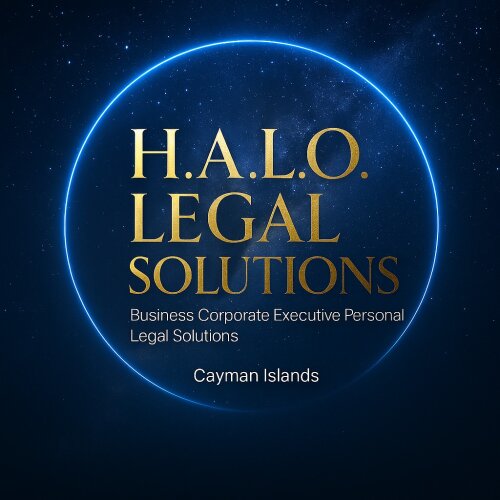Best Acquisition / Leveraged Finance Lawyers in Cayman Islands
Share your needs with us, get contacted by law firms.
Free. Takes 2 min.
Or refine your search by selecting a city:
List of the best lawyers in Cayman Islands
About Acquisition / Leveraged Finance Law in Cayman Islands
Acquisition finance refers to the funding of the purchase of companies, business assets, or shares, while leveraged finance involves the use of significant amounts of borrowed money to meet the cost of acquisition. In the Cayman Islands, acquisition and leveraged finance law focuses on structuring, negotiating, and implementing finance arrangements that make use of the jurisdiction’s flexible legal regime and internationally recognized financial infrastructure. The Cayman Islands is a popular location for cross-border finance transactions, thanks to its tax neutral status, well-developed financial services sector, and robust legal system based on English common law.
Why You May Need a Lawyer
Engaging a lawyer with expertise in acquisition or leveraged finance in the Cayman Islands is essential for a range of complex situations. Common scenarios include:
- Structuring the acquisition of a company incorporated in the Cayman Islands
- Establishing or advising special purpose vehicles (SPVs) for acquisition financing
- Negotiating loan agreements and security documentation under Cayman law
- Ensuring compliance with local regulatory and anti-money laundering requirements
- Advising on security interests and enforcement rights over Cayman assets
- Providing opinions on corporate capacity and due execution of finance documents
- Resolving disputes or workout situations involving Cayman-incorporated entities
A lawyer can provide critical guidance to ensure the transaction is legally sound, enforceable, and optimized for efficiency and risk management.
Local Laws Overview
Several Cayman Islands laws and regulations play a pivotal role in acquisition and leveraged finance transactions:
- The Companies Act (2023 Revision): Governs the formation, operation, and winding up of companies. Determines corporate authority to borrow and grant security.
- Security Interest Registration: The Security Interests (Jersey) Law does not apply. Instead, charges over shares are perfected by registration in the company's register and sometimes by notice to the registered office, but there is no central public register for asset security except in aircraft and vessel registries.
- Exempted Companies Regime: Used for most cross-border financings due to tax neutrality and flexibility.
- Financial Services Legislation: The Proceeds of Crime Act, Anti-Money Laundering regulations, and economic substance laws impact documentation and compliance requirements.
- Enforcement Procedures: Cayman courts generally uphold and enforce proper contract and security arrangements. However, the law on bankruptcy, receivership, or winding up of companies must always be taken into account, especially the potential impact on secured creditors.
Given these factors, engaging local legal counsel helps navigate the unique nuances of Cayman Islands law in such transactions.
Frequently Asked Questions
What entities are commonly used in Cayman acquisition finance?
Exempted companies are preferred for their flexibility, tax neutrality, and global acceptance. Limited liability companies (LLCs) and limited partnerships are also options, depending on the structure and commercial requirements.
How is security typically taken over shares in a Cayman company?
Most commonly, security is taken by way of an equitable mortgage or charge over shares. This is noted in the register of members and, in some cases, appropriate notices are given to the registered office of the company.
Is there a central registry for security interests in the Cayman Islands?
Generally, there is no central public registry for security over assets, except for certain assets like aircraft and vessels. Share charges are typically recorded in the company’s own register.
Can loans governed by foreign law be made to Cayman companies?
Yes, Cayman companies frequently enter into finance documents governed by foreign law, but certain formalities and Cayman legal opinions are often required to ensure validity and enforceability locally.
What is required to perfect security interests?
Perfection usually involves registration of the interest in the company's own records and, if relevant, notification to third parties. There is rarely a requirement for public filing except for charges over certain registered assets.
Is there withholding tax on interest paid by a Cayman company?
No, the Cayman Islands imposes no withholding taxes on interest or other financing fees paid by Cayman companies, which is a significant benefit for international lenders.
What insolvency risks should lenders consider?
While secured creditors enjoy strong protections, priority claims and statutory insolvency procedures must be considered. Local legal advice is essential to ensure valid enforcement procedures if the borrower defaults.
Are there financial assistance rules in the Cayman Islands?
There are no statutory financial assistance prohibitions in the Cayman Islands for private companies, making it easier for target companies to provide guarantees or security in support of acquisition financing.
What anti-money laundering (AML) requirements apply?
Finance transactions must comply with the Cayman Islands’ robust AML and know-your-customer (KYC) regulations, often involving disclosures and background checks on parties to the transaction.
When is a Cayman legal opinion required?
Lenders typically require a legal opinion from Cayman counsel confirming the borrower's capacity, due execution, and enforceability of transaction documents governed by Cayman law.
Additional Resources
The following resources and authorities are useful for anyone involved in acquisition or leveraged finance in the Cayman Islands:
- Cayman Islands Monetary Authority (CIMA): The primary financial regulator providing guidance on financial services, compliance, and licensing
- Cayman Islands General Registry: Maintains company records and provides incorporation and search services
- Cayman Islands Law Society: Directory of qualified legal professionals and law firms
- Ministry of Financial Services and Commerce: Provides updates on applicable legislation and economic substance requirements
- Industry publications: Law firm guides and client alerts on acquisition and finance law developments
Next Steps
If you need legal assistance with acquisition or leveraged finance in the Cayman Islands, consider the following steps:
- Determine the nature of your transaction and identify the Cayman entities involved
- Gather all relevant information and documents, including company details, transaction structure, and financing terms
- Contact a reputable Cayman Islands law firm or attorney who specializes in banking, finance, or corporate law
- Prepare a list of questions and be ready to discuss your goals and any potential legal or regulatory concerns
- Request a written engagement letter and clarification of fees before proceeding
- Work closely with your chosen legal advisor throughout the transaction to ensure compliance, mitigate risks, and achieve a smooth closing
Taking these steps will help you navigate the complexities of acquisition and leveraged finance transactions efficiently and with confidence in the Cayman Islands.
Lawzana helps you find the best lawyers and law firms in Cayman Islands through a curated and pre-screened list of qualified legal professionals. Our platform offers rankings and detailed profiles of attorneys and law firms, allowing you to compare based on practice areas, including Acquisition / Leveraged Finance, experience, and client feedback.
Each profile includes a description of the firm's areas of practice, client reviews, team members and partners, year of establishment, spoken languages, office locations, contact information, social media presence, and any published articles or resources. Most firms on our platform speak English and are experienced in both local and international legal matters.
Get a quote from top-rated law firms in Cayman Islands — quickly, securely, and without unnecessary hassle.
Disclaimer:
The information provided on this page is for general informational purposes only and does not constitute legal advice. While we strive to ensure the accuracy and relevance of the content, legal information may change over time, and interpretations of the law can vary. You should always consult with a qualified legal professional for advice specific to your situation.
We disclaim all liability for actions taken or not taken based on the content of this page. If you believe any information is incorrect or outdated, please contact us, and we will review and update it where appropriate.
Browse acquisition / leveraged finance law firms by city in Cayman Islands
Refine your search by selecting a city.
















